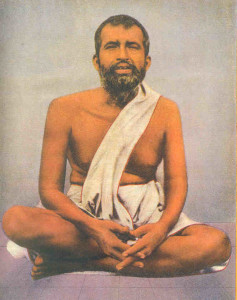Some of the clearest and most open people I come across within the practice of Ashtanga tend to be new students. They're filled with the excitement and possibility that the practice engenders in them. These newer students are ripe with what Patanjali, the author of yoga's source text, The Yoga Sutras, calls vidya. Vidya is a lot like what the Zen monk, Shunryu Suzuki, called the beginner's mind. A beginner's mind is clear, open, alert, receptive and without limits. A beginner's mind isn't fixed in opinions, judgements, or beliefs. Instead, it's like an empty vessel for spirit to move through. It sees from perspectives but isn't fixed in one as if it's "the right" perspective. In the beginning, the practice itself and the experience of what we discover on the mat can be exciting. When I first began the practice, I was amazed by my capacity to respond to situations that previously might have appeared paralyzing with great calm and clarity. Just showing up on that mat on a day-in-and-day-out basis began a clearing away of what had been blocking me for years. I'd been living in an experience of post-traumatic stress for a few years after my brother's suicide without any effective means of working through the painful emotions. Showing up on that mat everyday forced me to face what I'd been frightened of facing, but once I did, it somehow alleviated the suffering I'd been living with, and I was able to start to feel alive, again. The practice gave me this direct experience that it was possible to transform avidya to vidya, by learning to be with and not be afraid of painful emotions.
Knowing and Understanding are Booby Prizes
Eventually, though, a sort of pride started to appear because I started to "know" something. I'd learned and, thus, thought I knew that there was a process to transforming painful emotions. Knowing anything is a booby prize within yoga. Knowing is not what we're after. Whatever we know creates a kind of fixity, and it removes us from the direct experience of discovery. The experience of yoga is about evoking a profound curiosity to what is right in front of us. We're awakening the capacity to meet mystery rather than trying to pack it neatly into a box of comprehension.
And when we've dedicated years to the practice, we can't help but understand a lot of things. That's natural, but being an authority has the potential to steer us away from the experience we had when we first discovered the practice. So when we start to "know more," we tend to end up boxing ourselves into fixed perspectives, beliefs, opinions, and judgements. When we already know everything there is to know about something, we end up strengthening muscles that we came to practice to let go of.
And so it's critical for all of us who stay with the practice--or any practice for that matter-- over a sustained period of time to be aware of how our approach to it is supporting our evolution or engendering structures of rigidity. This inflexibility is a natural byproduct of anything we do repeatedly and yet is something we have to be constantly aware of so that it doesn't halt our transformation. Below are some questions that we might employ to prevent this form of mental tightness from taking form in our practice:
- How is my practice either growing me
- How is it keeping me narrow?
- Where am I caught in being right in my relationships with others? Where have I shut down?
- What situations in my life could use my curiosity?
- What's the feedback the people around me are giving me on a regular basis? What's the feedback I could take in that would benefit my evolution?
The longer we've been in any tradition the less others will question our authority. And that can be a pitfall for any progress we hope to make on the path from avidya to vidya. That's why it is critical for each of us to continue to seek wise counsel and to surround ourselves with people who trust enough to question us, no matter how much we know. It's also important not to forget that whatever we know, whatever sidhis (powers) we've accrued in and through our practice, that that's not it. What we're after is not the acquisition of more power or attainment but, instead, letting go, not grasping at anything, and opening so that we, too, can show up on the mat and into our lives as beginners do, with a mind that is limitless, boundless, and clear.
